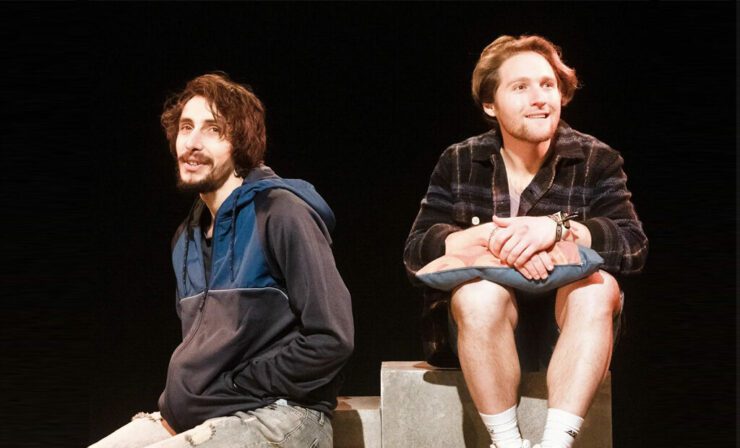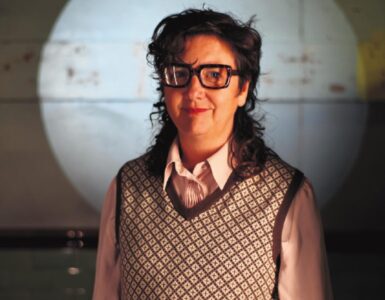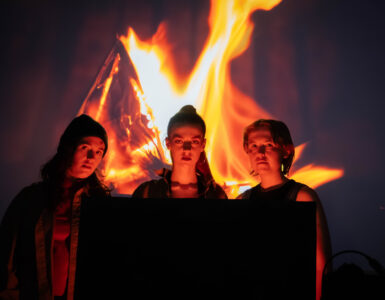Imagine you match with a cute guy on Grindr, he’s nice, the conversation is flowing… if a little more NSFW than you intended, and he’s only 20km (12 miles) away. Great! Until you realise a militarised border separates the 20km. It’s not any regular border, but The Blue Line, one of the most contentious demarcation lines in the world. That is the plot of Borders by Nimrod Danishman, a story of two young gay men who have every reason to be enemies yet fall in love online.
The story of George and Boaz has all the ingredients to make a compelling show, anyone can see the complexity of their situation yet can’t help but root for their love story. As the plot unravels and we learn more of the characters’ ties to their border, the conceptual and physical border between them grows more solid.
The writing cleverly plays with the concept of choice, privilege and nationalism without being too much of a deep dive into the surrounding geopolitical discourse. The focus is always on the two characters and their personal relationship with their selves, their sexuality and the border. Never are we asked ‘who is right and who is wrong’ but more we are asked to understand how living in borderlands shapes the people we become. Through George and Boaz we see the differing effects of privilege, how two very similar places and people suffer differently due to the presence of artificial borders. As a writing debut, Danishman has proven themselves to be a textured and thoughtful writer.
The set itself is made up of a few concrete-looking boxes which can be moved and expanded to create a fence of sorts. I have to say, one of my biggest turns-off in theatre is a set which is constantly, often without purpose, moved about on blackouts or low light. However, Borders refrained from falling into the trap of continuously re-doing their set. Instead, the concrete boxes/fence was used tastefully and sparingly to remind us of the reality and at times the irrationality of the demarcation line. The concrete border set became a bed, a fence, a resting place and finally a death wish. It played with the meaning of the concept so well without being too in your face, the beauty of it lay in its subtleness.
Both actors Yaniv Yafe and Tarik Badwan had good chemistry and great comedic timing. The love between them was believable and heart-warming, but as the play began to take a turn to more serious matters, I found the performance began to become a bit one note. Certain dramatic monologues came across as a bit too incessant. I wish these performances had played with silence throughout these monologues the same way they used it in the beginning. Overall, both Yafe and Badwan had a great understanding of their roles, and as always I love to see accurate casting and authenticity on stage, which Borders did brilliantly.
Finally, I found myself thinking the play escalated too quickly. I was left with certain questions and felt as if the final third of the play needed something more. As mentioned above, the beginning played with silence well. Yet, as the plot became more dramatic I felt as if all the careful timing was lost, which was disappointing after such a strong start.
Recommended Drink: For Borders I’d recommend a minty cocktail, something fresh and sweet to remind you of a budding romance, my go-to would be a mojito.
Performances of Borders have now concluded at VAULT Festival now. Keep up with Junction Theatre through their social media for future showings.









